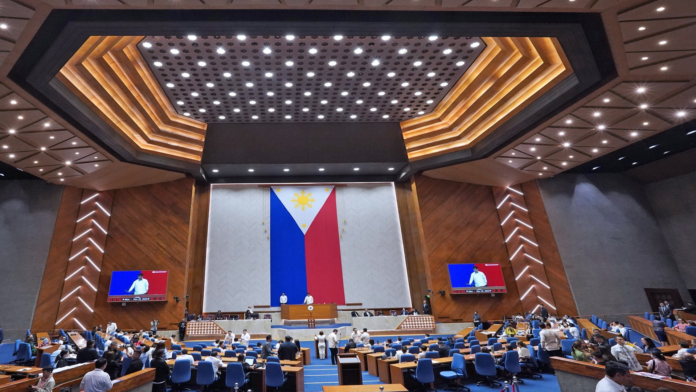The House of Representatives on Tuesday approved a measure that would allow tapping the excess funds of government-owned and controlled corporations (GOCCs) for unprogrammed appropriations in the 2023 budget.
During the plenary session, the chamber approved through voice voting House Bill 9513, which provides an additional criterion for the availment of the unprogrammed appropriations by amending Republic Act 11936 or the 2023 General Appropriations Act.
The bill proposes that the funds of GOCCs determined to be in excess of their current administrative or operational expenses, benefit obligations, or reserve requirements may be used to implement the vital purposes under the unprogrammed appropriations.
The Department of Budget and Management defines unprogrammed appropriations as items “which provide standby authority to incur additional agency obligations for priority programs or projects when revenue collection exceed targets, and when additional grants or foreign funds are generated.”
The current law provides that the unprogrammed appropriations are funded using excess revenue collections in any non-tax revenue sources from its corresponding revenue collection target as reflected in the Budget of Expenditures and Sources of Financing (BESF); new revenue collection or those arising from new tax or non-tax sources which are not included in the original revenue sources in the BESF; or approved loans for foreign-assisted projects.
“It is an accepted fact that certain government corporations have funds far exceeding their current administrative and operational expenses, benefit obligations, and/or reserve requirements. These funds lie idle in the banks or are invested in time deposits and other securities with other government and non-government financial institutions and results in the inefficient use of national government resources,” the bill’s explanatory note read.
It further noted that these government corporations can readily provide the necessary funds to assist the national government’s requirements and fund “much-needed” unprogrammed projects. (PNA)
Photo credit: House of Representatives Official Website


